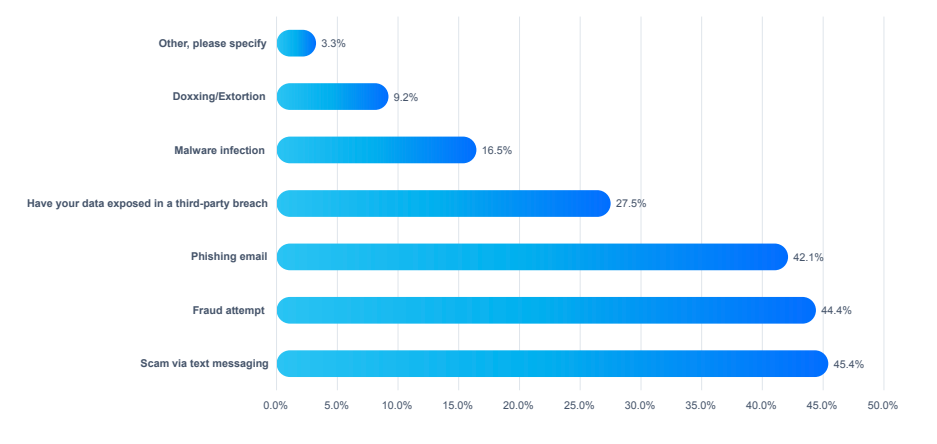State of New York Freezes $2.2 Million in Crypto from Job Scams

The State of New York is making an unprecedented move to recover money stolen through remote job scams, freezing crooks’ crypto wallets and seeking to distribute the funds among scammed New Yorkers.
New York Attorney General Letitia James has filed a lawsuit to recover $2.2 million worth of cryptocurrency stolen from victims across the US in a remote job scam.
“An investigation by the Office of the Attorney General (OAG), together with the U.S. Secret Service and the Queens County District Attorney’s Office, found that scammers have been sending text messages offering fake online job opportunities that were actually a scheme to entice unsuspecting people to purchase and deposit stablecoins, a type of cryptocurrency, into those scammers’ digital wallets,” reads a press release from the Office of the New York State Attorney General.
‘Your crypto back, plus commission’
Scammers targeted people looking for remote jobs, tricking them into opening crypto accounts to start earning money for the simple act of reviewing products.
“The scammers told victims who responded to unsolicited text messages that the jobs required them to review products online to help generate “market data” that would lead to sales,” according to the OAG. “The victims were then told that to earn money they had to open accounts with a number of registered and licensed cryptocurrency platforms and had to maintain a cryptocurrency account equal to, or greater than, the price of the products they were reviewing.”
Victims were told the account balances would help “legitimize” the data they were generating and that they’d eventually get all their money back, plus commission.
Victims were also instructed to create and connect a crypto wallet to their accounts to receive compensation.


Screenshots depicting the early stages of the scam
Source: ag.ny.go
Some lost six figures to the scam
Scammers told victims to buy crypto using transparent, licensed, centralized platforms like Coinbase, Gemini and Crypto.com. Victims were then tricked into sending the funds to scammers’ digital wallets, which were unhosted, making the tokens harder to trace.
Victims who had trouble converting their money into crypto were told to send US dollars directly using wiring services like Wise, on the promise that the recruiter would “buy the cryptocurrency for them.”
According to the AOG, one victim lost a whopping $100,000 to the scam.
“Deceiving New Yorkers looking to take on remote work and earn money to support their families is cruel and unacceptable,” said Attorney General James. “Scammers sent text messages to New Yorkers promising them good-paying, flexible jobs only to trick them into purchasing cryptocurrency and then stealing it from them. The cryptocurrency that has been frozen thanks to my office will be available to help New Yorkers defrauded by this scam. I urge all New Yorkers to be cautious of text messages from unknown senders claiming to offer jobs or other opportunities, and to report any scams to my office.”
Based on a referral from the US Secret Service, Queens District Attorney Melinda Katz leveraged her Cryptocurrency Unit experts to identify and trace over $2 million in stolen crypto and identify the digital wallets that held these coins.
“Partnering with State Attorney General Letitia James’ Investor Protection Bureau, we were able to freeze the tokens to preserve victim funds while the Attorney General’s office seeks to recover the stolen millions,” said Katz.
Attorney General James seeks to become the first regulator to provide notice of litigation by depositing a nonfungible token (NFT) into the wallets used to steal the victims’ cryptocurrency.
This will provide the scammers with notice of the litigation by giving them a link to an OAG website containing all the pleadings.
James encourages New Yorkers who believe they have fallen victim to a text message scam involving fake remote work job opportunities to file an online complaint with her office.
Text is a leading attack vector in most scams
According to the Bitdefender 2024 Consumer Cybersecurity Assessment Report, scams run rampant worldwide yet consumers still engage in complacent cybersecurity practices.
We asked respondents who suffered a security incident to identify exactly what type of threat they dealt with in the past 12 months and choose all that applied to them.
Text-borne scams (45.4%) came out on top as the most common security event experienced by consumers, followed closely by fraud attempts (44.4%) and phishing emails (42.1%).

Source: 2024 Consumer Cybersecurity Assessment Report
Job scams abound
In June last year, an FBI public service announcement warned that scammers impersonating recruiters were targeting citizens with fake job offers designed to steal their money.
“[Fraudsters are] offering victims fake work-from-home jobs, typically involving a relatively simple task, such as rating restaurants or ‘optimizing’ a service by repeatedly clicking a button,” said the memo, with the feds stressing that scammers typically contact victims by text.
Then, in December, the Federal Trade Commission issued its own data spotlight on the job scam epidemic, highlighting the rise in job scams over the years, which culminated with a record number of reports in the first half of 2024.
According to the FTC’s stats, reported losses to job scams more than tripled from 2020 to 2023, and in just the first half of 2024 quadrupled, topping $220 million.
Read: Job Scams Cost Americans Hundreds of Millions of Dollars in 2024
How to spot a job scam
Generally, any text message not coming from one of your contacts should be considered suspicious – especially messages about jobs. No real employer will ever contact you that way out of the blue.
The concept of you paying first to get paid later is another red flag. The only item you should ever be paying for upfront when getting a job is your bus ticket or cab ride to the interview.
And remember that getting paid for likes, ratings or reviews is illegal, so refrain from engaging in such activities.
If in doubt, use a scam fighting tool like Scamio. If you’re suspicious about a certain phone call, email, or text message, simply describe the situation to our clever chatbot and let it guide you to safety. You can share with Scamio the exact thing you want to check, like a screenshot, link, QR code, etc. Scamio lets you know in seconds if it’s a sham.
tags
Author
Filip has 15 years of experience in technology journalism. In recent years, he has turned his focus to cybersecurity in his role as Information Security Analyst at Bitdefender.
View all postsRight now Top posts
How to Protect Your WhatsApp from Hackers and Scammers – 8 Key Settings and Best Practices
April 03, 2025
Outpacing Cyberthreats: Bitdefender Together with Scuderia Ferrari HP in 2025
March 12, 2025
Streamjacking Scams On YouTube Leverage CS2 Pro Player Championships to Defraud Gamers
February 20, 2025
How to Identify and Protect Yourself from Gaming Laptop Scams
February 11, 2025
FOLLOW US ON SOCIAL MEDIA
You might also like
Bookmarks








